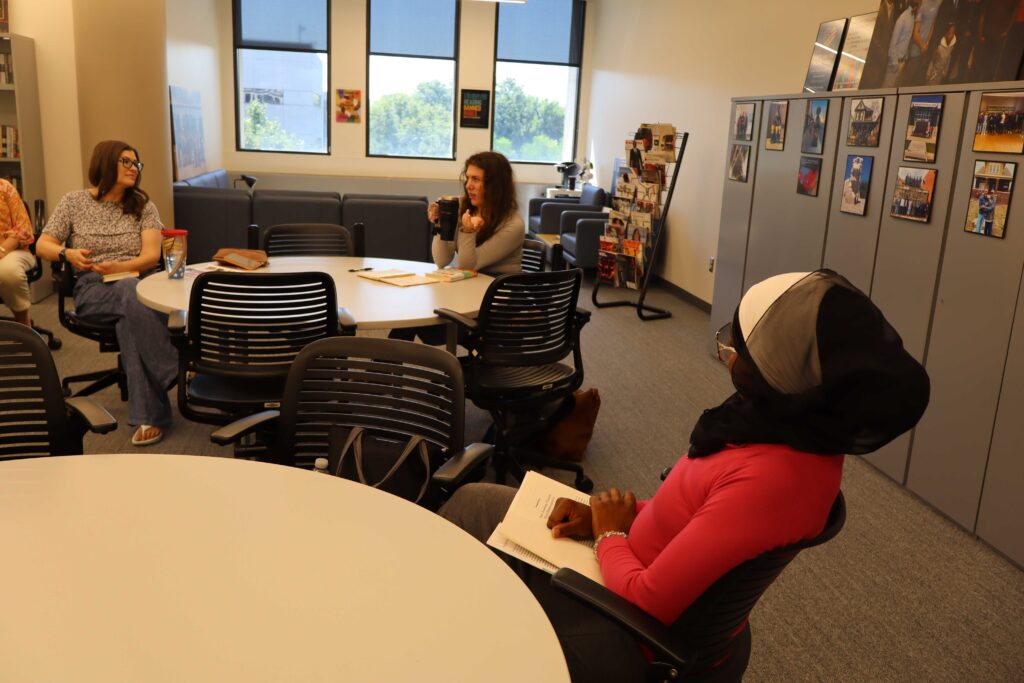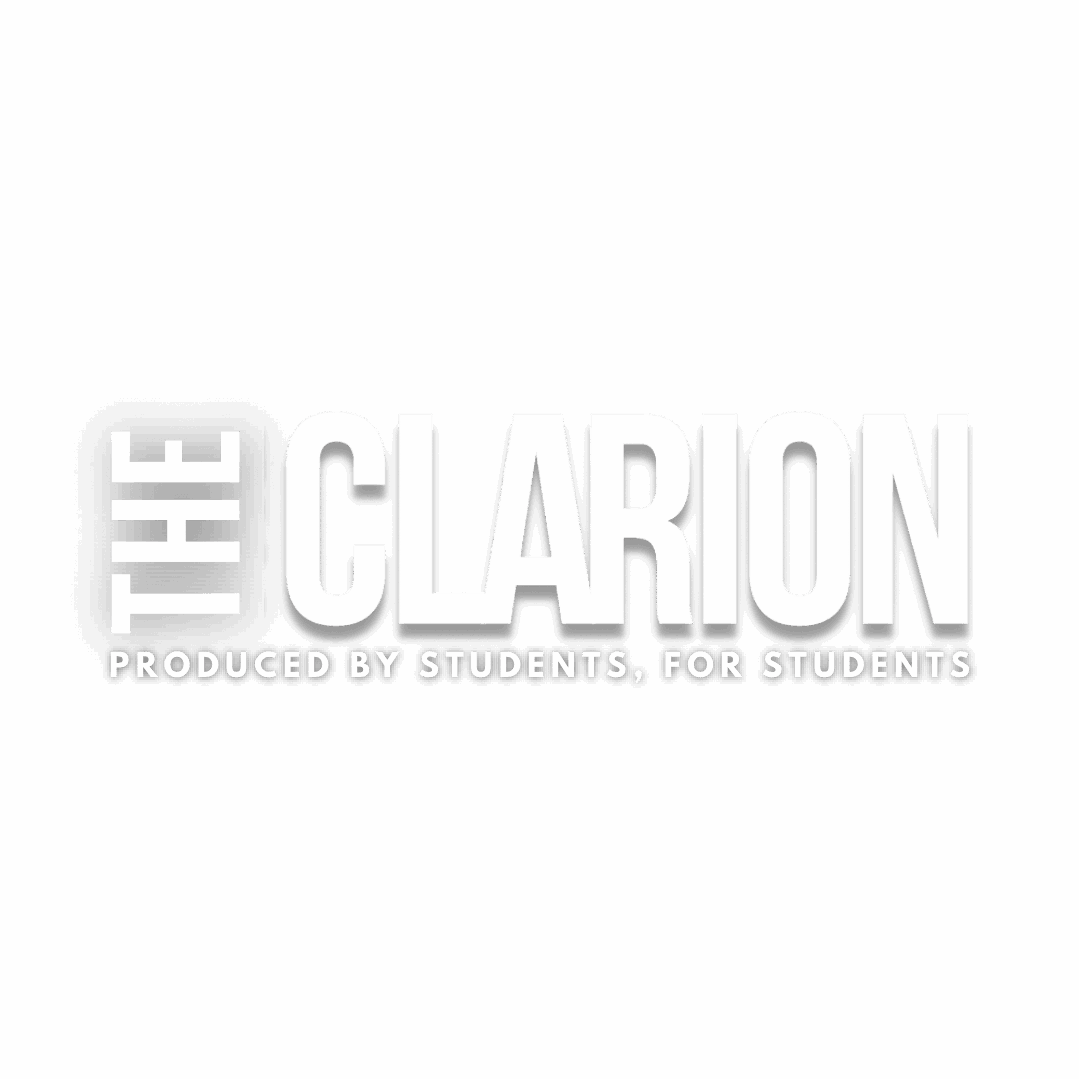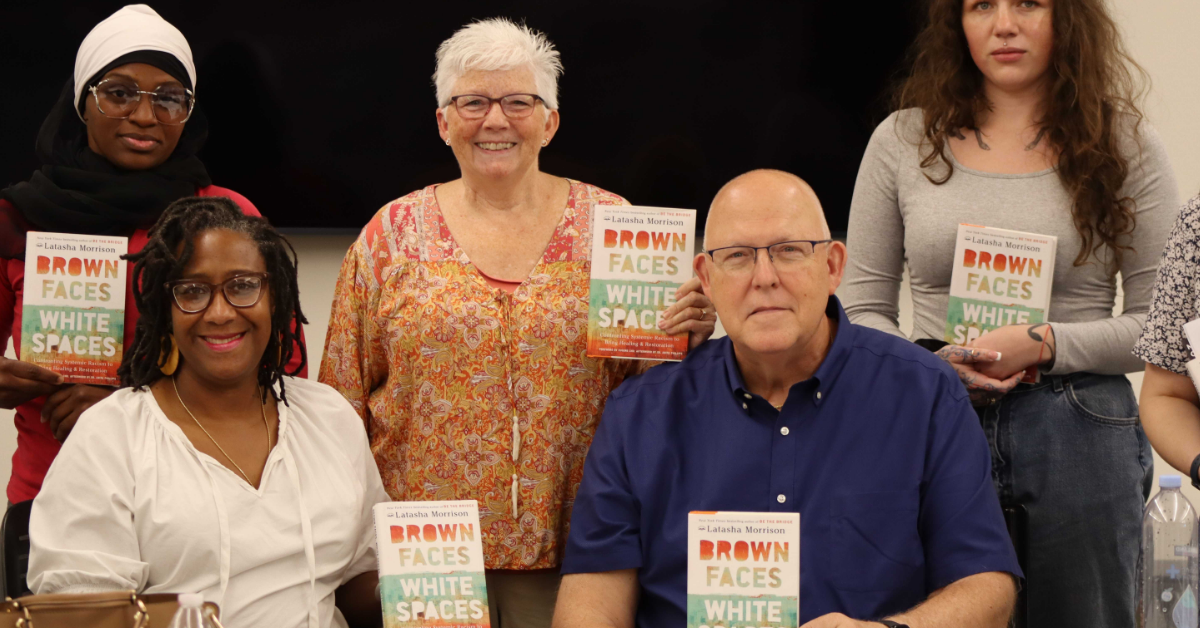On September 10, in the Our American Journey Classroom, located in Building 11 room 11324, powerful conversations and earnest discussions were held about around Latasha Morrison’s “Brown Faces, White Spaces”.
The free-book initiative attracted thoughtful students eager to unpack the themes of race, place and belonging through open, honest conversation.

Paul Strozier, Sinclair College’s multi-faith campus chaplain and co-facilitator of the book club, is passionate about open and productive conversations.
“My wife, Mariann, and I have been active in the work of racial reconciliation for many years. We believe getting people together for open, honest discussions makes a difference. This book helps to facilitate those conversations,” Strozier said.
His words set a tone of intentional community-building rooted in relationship and purpose.
Mariann Strozier also shared her own personal and hopeful perspective on race relations.
“I believe in order for us to live together on this one planet, we must do all we can to build bridges of understanding with one another… at our core, we are all more alike than different,” Mariann said.
Their voices together created space for vulnerability and mutual reflection. The conversation then turned personal with participants asking about their own responsibilities and decisions about prospective jobs and life choices.
Drawing on Morrison’s three-phase framework: Preparation, dedication and liberation; the group discussed how awareness, commitment and action can guide collective healing.
“This book is a follow up to “Be the Bridge”. Ms. Morrison combines an excellent insight into American history with a clear view of how foundational beliefs of religion advocate for peace and equality for all people,” Strozier said. “The history helps us identify the problems while the religious insights help us see potential paths toward solutions.”
As the conversation deepened, Strozier underscored the connection between these themes and Sinclair’s campus.

“These themes, race, place and belonging are central to our human experience and therefore to our campus community… When we value and pursue authentic identity for all, it helps to lead us toward compassion and greater community.”
And an insightful and personal contribution from Kanesha Tobias added yet another layer.
“We shared a lot of vulnerable stories… Our families taught us to navigate environments dominated by non-white or white-passing people. I recall being told, ‘Make sure you don’t show how thick your nose and lips really are’ or ‘Don’t stand outside in the sun too long, your skin will get too dark.’ We learned these messages from people who hated us. Now, I’m here learning how to help create better experiences for brown faces in white spaces,” Tobias said.
This reflection illustrated how deeply personal history and family teachings connect with the book’s themes and underlined why these conversations matter.
The consensus in the room was hopeful. Participants expressed gratitude for this safe and authentic space. Many voiced hopes that these talks would sow deeper understanding and lifelong reflection.
“Changed people will change society. If we can create safe spaces … then those people may help change the world for the better,” Strozier said.
With weekly sessions held every Wednesday throughout October, the book club promises not just reading together but growing together as a community. Students interested in participating can register here.
Maliya Ayambire, staff writer
Check out more posts by the Clarion:
- My Voice: Christmas cryptids bring haunts to the holidays
- 5 Christmas movies to stream during winter break
- My Voice: Keep pets safe during the holidays
- A holiday tail with a twist: ‘Twas’ brings inclusivity, pets and sign language to Sinclair Theatre
- Editorial: Calling out the press – or silencing it? The White House’s troubling new tactic

